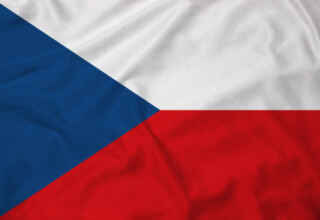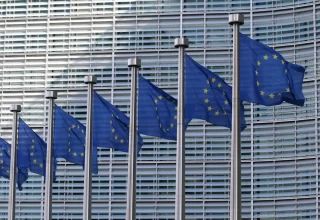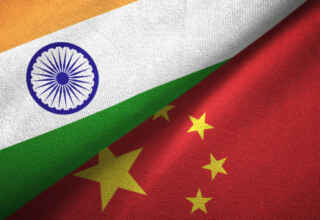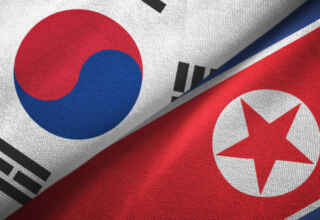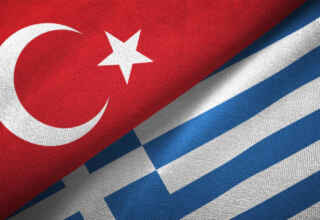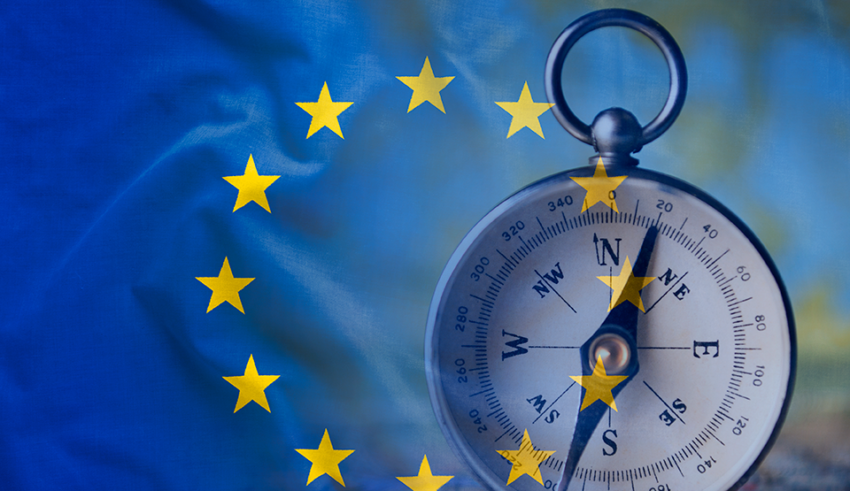
At its meeting at the end of March 2022, the European Council adopted a strategic compass for security and defence. Compared to the policy outlining the Union’s main strategic lines, meaning the European Security Policy from 2003, the strategic compass presents a real opportunity for concrete progress in security and defence. Based on an analysis of the dangers carried out by the Member States in 2020 and 2021, the Union now has a real instrument empowering it to take concrete action. Indeed, the strategic compass doesn’t only determine the level of ambition of the Union but also includes concrete measures concerning crisis management, resilience, partnerships and capacities.
The result of a working process begun in 2020, the strategic compass can thus become a guiding principle for the Union’s external action – provided that the Member States, as guiders of the Union’s foreign and security policy, consider it a legitimate and politically binding tool. If the Union, despite the multitude of crises in its neighbourhood and the new challenges it faces, fails to apply the compass in a systematic way, this will call into question the relevance of the coordination and integration efforts of the Union’s Member States in the field of security and defence. In this sense, the compass may represent the last chance for the Union to (re-)position itself as an active player in international security. The Ukrainian crisis is already a first test for the Union to show its willingness to follow up its statements with concrete steps.
During the Sorbonne speech in 2017 by Emmanuel Macron, the term European strategic autonomy by had provoked heated debates among European countries and had highlighted gaps between countries with a strategic culture described as “Europeanist,” that is, those who preferred European integration in security and defence within the Union, and the so-called “Atlanticist” countries with a preference for European defence integration within NATO. Strategic autonomy, as defined by the European Council in 2016, is “the ability to act autonomously wherever necessary, and with partners wherever possible.” But even countries that are very reluctant to use the term autonomy express the need for the Union to increase its capacity to act.
While the French-German duo remains a crucial relationship to move the Union forward in the field of security and defence and to adopt major strategic decisions, the last few years have shown an increase in the importance of other member countries of the Union in this area. The Netherlands, in particular, has made a significant contribution to advancing European strategic thinking. Together with Spain, it published a non-paper on European defence in March 2021, which presents a beginning of European strategic autonomy that is very close to the version promoted by France. Likewise, Italy, under the new Draghi government, is systematically strengthening its partnerships, as indicated by the Quirinal Treaty with France signed in November 2021, or the trilateral discussions with France and Germany held in mid-December 2021. It is therefore likely that these countries will continue to strengthen their efforts to influence decisions on European security and defence. But it can’t only stay between the mentioned countries.
The geopolitical context of today constitutes an important window of opportunity for the Union to strengthen partnerships and promote flexible majorities on defence issues. In a next step, these could materialize either in the form of coalitions, according to Article 44 of the European Treaty, which allows the delegation (of common security and defence policy tasks) to a group of member countries, or in the framework of formats outside the institutional structures of the Union.
The Union will have to demonstrate its capacity to be a credible and competent partner in matters of international security and defence
For several years, the American approach to European security was clear: military and strategic issues were negotiated within NATO, while governance and stability was the Unions competence. With the creation of the security forum between the European Union and the United States at the beginning of 2022, the Union will become the direct conversational-partner of the United States on security issues. While the Union has already played an important role during the negotiations of the Iranian nuclear agreement or in stabilizing crises in its neighborhood, the security forum between the United States and the Union will make the latter a valued conversational-partner on a multitude of security and defence issues. Undoubtedly, a key U.S. objective for the forum will be to align the EU with its strategy of “fierce competition” with China, an issue that is likely to generate significant transatlantic tensions.
This forum also illustrates that international security issues, because of their often hybrid and complex nature, can hardly be addressed without the participation of the Union, given its economic weight, which constitutes an important lever. NATO will surely remain, at least in the medium term, the institution where military and strategic issues will be addressed, but the security forum between the United States and the European Union shows that the latter is progressively acquiring the capacity to act and, above all, to carry weight on an international scale. But now the crucial test for the Union is the translation of its concepts and strategic documents into concrete action, because for the moment it is insufficient.
Europeans will be forced to (re)invent the European defence industry
European armies are almost entirely equipped with American military equipment. The argument that this decision is based on market logic, the Americans making better offers than Airbus, Dassault or Saab, may be valid, this decision must also be understood in its political context. At a time when the European Union is in the midst of a debate on strengthening its capabilities, and when European countries are redoubling their efforts to strengthen the European defence industry, U.S. orders from EU member states seriously question the relevance of such political projects.
As it seems unlikely that the U.S. approach to arms-systems-sales to European partners will change in 2022, Europeans must adapt to it if they want to keep their promises in terms of European sovereignty in the defence industry and buy European.
Admittedly, the 2017 launch of the European Defence Fund was a promising initiative. But compared to other areas (European Regional Development Fund, European Social Fund…), the investments planned in the European Defence Fund remain too low in the Union’s recovery plan. If the harmonization of the competences of the EU member states is part of the EU’s defence policy objectives, European decision-makers will have to set the course and invest more and in a much less individual way. Without such an initiative, the European defence industry and, consequently, European defence, risk remaining fragmented – to the disadvantage of the Union’s security policy.
The lack of convergence between the EU’s strategic compass and NATO’s Strategic Concept is a missed opportunity for European defence
Twenty-four EU member states are also members of NATO, which currently has 30 members. The Brussels NATO summit in June 2020 has already unveiled NATO’s priorities between now and 2030, which are in line with NATO’s classic mandate, such as deterrence or the strengthening of military capabilities, while also emphasizing new challenges such as new technologies or climate change. The Madrid Summit, scheduled for the end of June 2022, will be an opportunity to present NATO’s strategic concepts as well as those of the strategic compass in order to align them instead of making them diverge. NATO occupies an important place in the part dealing with the Union’s partnerships, and some elements of the compass, such as cyber challenges or climate, could undoubtedly be the subject of close cooperation. But the fact that so few elements of convergence have been actively sought between the two processes is a missed opportunity for European defence in a broader context. Especially since NATO does not see the Strategic Compass as an opportunity for convergence and cooperation, but rather as an affront, if not a competition. Quoting Stoltenberg, Secretary General of NATO : The NATO allies are in agreement on our overall objective, which is that we must remain united. I do not believe in efforts to create something outside the NATO framework, or to compete with or duplicate NATO.
Europe’s ability to act will be strengthened by flexible formats
2022 will most likely be the year of a reinforcement that has already been happening for a few years, meaning European defence cooperation outside the institutional structures of the EU and NATO. For the moment, such formats, often described as “willing coalitions”, have been put in place in the Strait of Hormuz, where the EMASOH coalition (composed of the governments of Belgium, Denmark, France, Germany, Greece, Italy, the Netherlands, and Portugal) seeks to guarantee freedom of navigation, or in the Sahel, where France has integrated the Takuba task force, composed of European special forces, into the Barkhane mission, to support the fight against terrorism. While several countries criticize these formats, fearing that this form of differentiated European integration can only lead to a fragmentation of European security and defence and put an end to joint efforts for a common EU defence and security policy, it is an option that European countries will resort to more autonomously in the years to come if the EU does not take it up now. Because the need for such institutions is there.
This form of cooperation has already proven to be effective insofar as it allows competent and willing European states to find operational responses to the Union’s security challenges without facing institutional obstacles, while creating new groupings of states. This allows states that are only members of the Union, such as Sweden, and those that are only members of NATO, such as Norway or the United Kingdom, to strengthen their capacity for external operations. In the long term, this can only benefit the emergence of a common strategic and operational culture among Europeans, provided that EU member states is ready to think about security beyond a country’s membership of the Union or NATO or themselves. It is a question of creating a collective thought. Nevertheless, it is crucial that European countries are aware that such formats can only be an add-on, meaning an additional support to European defence, because the competences of such formats remain limited. They can serve as tools for crisis management on an ad hoc basis, but without a long-term vision, they will hardly replace a European defence with strategic thinking, concrete competence and clear objectives. It is therefore the right time for the Union to act.
https://www.lefigaro.fr/politique/le-scan/2017/09/26/25001-20170926ARTFIG00105-ce-que-macron-va-proposer-pour-l-europe-dans-son-discours-a-la-sorbonne.phphttps://www.euractiv.de/section/eu-aussenpolitik/news/mehr-strategische-autonomie-fuer-die-eu-niederlande-und-spanien-preschen-vor/
https://taz.de/Deutsch-italienische-Zusammenarbeit/!5830221/
https://ec.europa.eu/commission/presscorner/detail/fr/ip_22_924
https://www.vie-publique.fr/fiches/20394-existe-t-il-une-defense-europeenne
By The European Institute for International Law and International Relations.


